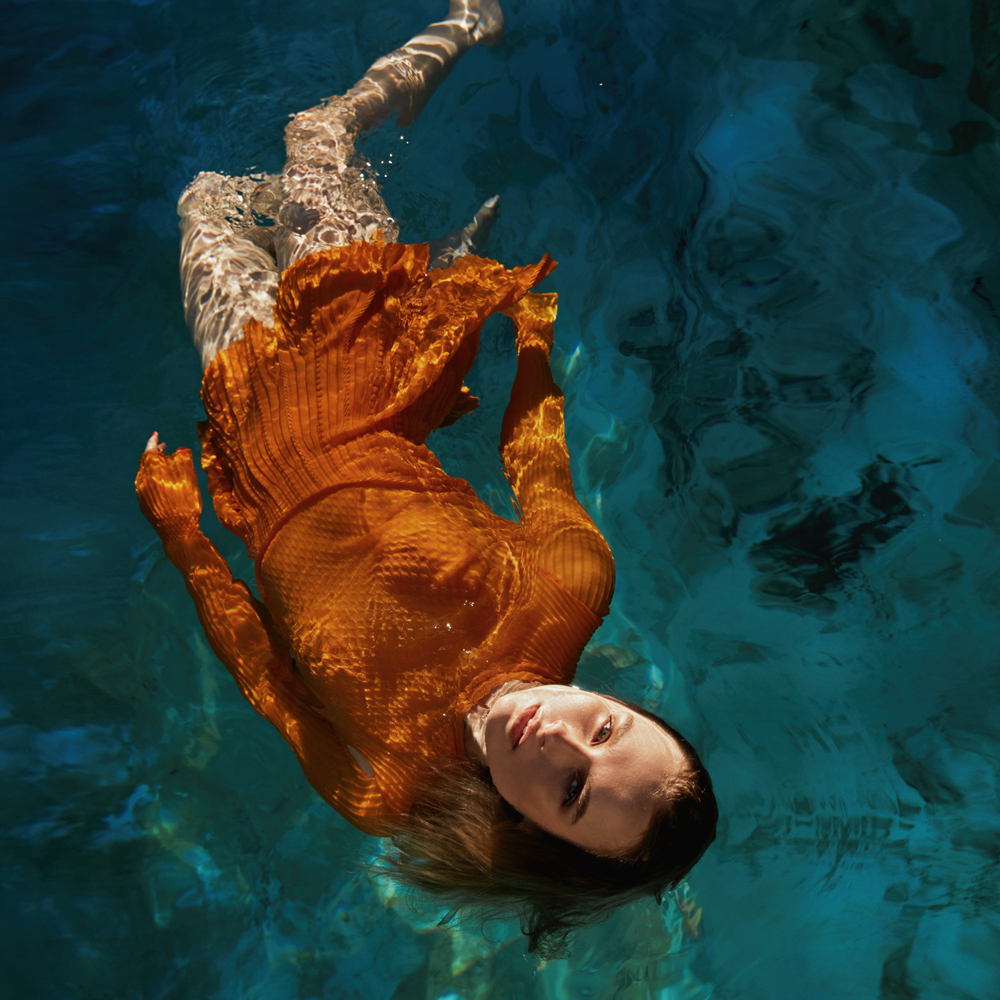
What is Olivia DeJonge's Sexuality?
Introduction to Olivia DeJonge
Olivia DeJonge is an Australian actress who has quickly risen to prominence in the entertainment industry. Born in Melbourne and raised in Perth, DeJonge embarked on her acting career at a young age. She made her debut with the critically acclaimed film “The Sisterhood of Night” (2014), where her compelling performance garnered significant attention from both audiences and critics alike.
Her breakout role came with M. Night Shyamalan’s 2015 horror-thriller film “The Visit,” which solidified her status as a promising young actress. Following this, Olivia DeJonge continued to build her repertoire with notable performances in series such as “Hiding” and “Will,” demonstrating her versatility and range as an actress.
DeJonge’s portrayal of Priscilla Presley in Baz Luhrmann’s biographical film “Elvis” has arguably been one of the most talked-about roles of her career to date. This performance has received widespread acclaim, elevating her profile on an international scale and establishing her as a significant figure in contemporary cinema. Her ability to seamlessly embody diverse characters has made her a beloved figure among fans and a respected talent within the industry.
Despite her relatively swift rise to fame, Olivia DeJonge has maintained a level of privacy regarding her personal life, which only adds to the intrigue surrounding her. As such, discussions about her sexuality and personal experiences are often speculative. Nevertheless, her influence extends beyond her on-screen roles; she has become a symbol of dedication and excellence, inspiring many aspiring actors worldwide.
Public Interest in Celebrities’ Sexuality
The public and media’s intense interest in celebrities’ personal lives has long been a prevalent phenomenon, encompassing various aspects such as relationships, lifestyle choices, and particularly, sexuality. This enduring fascination is rooted in several factors, including the natural human tendency toward curiosity and the allure of the glamorous, seemingly unattainable world of celebrities. Figures like Olivia DeJonge capture public imagination not just through their professional work but also through their personal narratives, driving a compulsion among fans and media to uncover every facet of their lives.
Specifically, the focus on a celebrity’s sexuality is part of the broader fascination with understanding and categorizing public figures. It also stems from a societal intrigue regarding identity and relationships. As public figures often serve as icons and role models, discovering their sexual orientation becomes a point of interest for fans seeking to connect on a deeper level or to find representatives of their own experiences in the public eye. Additionally, discussions about sexuality in the realm of celebrity can influence broader societal conversations about acceptance and equality.
However, this continuous scrutiny can have profound effects on the individuals involved. It often leads to an invasion of privacy, creating challenging environments for celebrities like Olivia DeJonge. The relentless media pursuit and public speculation can result in pressure to disclose personal information that they might prefer to keep private. This can not only affect their mental health but also detract from their professional achievements and contributions.
Moreover, there is an ethical imperative to respect the privacy of celebrities. While public figures may lead lives less shielded from scrutiny, they are entitled to personal boundaries. Respect for these boundaries is essential in fostering a culture that values individual privacy and dignity. Appreciating the work and artistry of celebrities like Olivia DeJonge without encroaching on their personal lives underscores respect for their humanity as well as their craft.
Olivia DeJonge’s Public Statements on Sexuality
Olivia DeJonge, a promising Australian actress, has garnered considerable attention for her roles in various film and television projects. Despite her rising fame, DeJonge has maintained a relatively private personal life, which inevitably includes the topic of her sexuality. In several public statements, she has addressed her views on sexuality in a contemporary and open-minded manner. However, she has generally refrained from categorizing or labeling herself definitively.
In an interview during the promotion of her film “The Visit,” DeJonge touched upon the subject of on-screen relationships and how they transpose to real life. Though not providing explicit details about her personal sexuality, she highlighted the importance of authenticity in relationships regardless of the gender dynamics involved. She stated, “It’s crucial, especially in today’s world, to recognize that love and connection come in many forms, whether on-screen or off-screen.”
On social media platforms, Olivia DeJonge has occasionally used her presence to endorse inclusivity and acceptance. In a tweet dating back to 2020, she mentioned, “Every individual should have the freedom to love who they choose and express their true selves.” While this does not directly comment on her own sexuality, it underscored her support for LGBTQ+ rights and general support for people’s freedom to love openly.
During a panel at a film festival, DeJonge was asked about the representation of diverse sexual orientations in media. Her response was notably forward-thinking: “Authentic representation matters. It’s imperative that we break away from stereotypes and provide a platform for all voices.” Here, DeJonge’s commitment to diversity and representation in the arts exemplifies her progressive stance on sexuality without necessarily disclosing her personal details.
Thus, while Olivia DeJonge has shared her perspectives on the broader topic of sexuality, she has managed to keep her specific sexual orientation private. Her public statements, while inclusive and forward-thinking, focus more on the importance of openness, representation, and love transcending traditional boundaries.
Speculations and Rumors
Speculations and rumors surrounding Olivia DeJonge’s sexuality have been numerous since her rise to fame. Her private life has often been subjected to unwarranted scrutiny and unfounded assumptions, reflecting a broader societal trend where public figures are expected to disclose personal details. This phenomenon is considerably exacerbated by the media’s persistent coverage and speculative journalism.
The media landscape plays a substantial role in perpetuating these stories, often prioritizing sensationalism over factual reporting. Headlines like “Is Olivia DeJonge Dating [Unnamed Person]?” or “Olivia DeJonge Sparks Debate About Her Sexuality” serve to generate clicks and engagement, regardless of their veracity. Unfortunately, these headlines contribute to public misconceptions and an intrusive narrative that can affect the mental well-being and public image of the individuals involved.
Rumors about any celebrity’s sexuality are particularly potent due to the societal intrigue surrounding such personal matters. Olivia DeJonge is no exception. Without official statements or concrete evidence, speculative articles snowball into widespread gossip, with social media platforms amplifying the reach of these unverified claims. These misconceptions can be harmful, leading to increased public pressure and unwanted attention on the person’s private life.
It’s crucial to recognize the harmful impact these rumors can have not only on Olivia DeJonge but also on broader societal perceptions of privacy and respect for individual boundaries. The spread of unsubstantiated stories underscores the need for ethical journalism that respects personal spaces while upholding the principle of truth. As fans and consumers of media, it’s essential to approach such topics with a degree of skepticism and to prioritize respectful discourse over sensational speculation.
The Impact of Fame on Personal Disclosure
In the realm of fame, personal disclosure becomes a double-edged sword. Celebrities, including talents like Olivia DeJonge, often grapple with the decision of how much of their personal lives to reveal. The scrutiny that comes with being in the public eye intensifies the pressure, making the disclosure of sensitive information, such as one’s sexuality, a highly deliberated choice. The dynamic between maintaining privacy and satisfying public curiosity can create a complex web for well-known figures.
The experiences of other celebrities highlight the multifaceted nature of this issue. For instance, Ellen Page, now Elliot Page, has spoken openly about the immense pressure to adhere to Hollywood’s heteronormative expectations before coming out as transgender. Similarly, Kristen Stewart’s journey from keeping her same-sex relationships private to becoming an outspoken advocate for LGBTQ+ representation illustrates the evolving landscape of celebrity disclosure. These narratives reflect a broader cultural shift but also underscore the persistent challenges faced by public figures.
For Olivia DeJonge, and others in her position, the decision to disclose aspects of their sexuality can be influenced by numerous factors. The fear of career repercussions, invasive media coverage, and the potential for misinterpretation are significant deterrents. Furthermore, the responsibility that often accompanies disclosure—becoming a de facto role model or spokesperson for a community—can add another layer of pressure. While the public’s interest in a celebrity’s personal life is not new, the rise of social media has heightened the immediacy and intensity of these pressures.
Yet, as society progresses towards greater acceptance and understanding, the landscape is slowly changing. Celebrities find themselves at the intersection of personal authenticity and public expectation, each navigating this terrain in their own way. Olivia DeJonge, renowned for her compelling portrayals on screen, exemplifies the careful balance between professional acclaim and personal privacy. Her choices reflect a nuanced understanding of the challenges and opportunities inherent in celebrity life, particularly regarding the often-sensitive disclosure of one’s sexuality.
Representation and Role Models
The representation of diverse sexual orientations in the media plays a crucial role in shaping societal attitudes and perceptions. This visibility can help dismantle stereotypes, foster inclusivity, and promote acceptance of various identities. Public figures like Olivia DeJonge often serve as powerful role models, especially when they are open about their personal lives and identities. Their willingness to share these aspects can have a profound impact on fans, particularly those who may be grappling with similar experiences or seeking acceptance.
When individuals in the public eye, such as Olivia DeJonge, embrace their sexuality openly, they challenge prevailing norms and demonstrate that there is no singular way to experience or express one’s identity. This not only provides validation and support to fans who see themselves reflected in these figures, but it also broadens society’s understanding and acceptance of diversity. Representation in the media ensures that everyone’s stories are told, making it easier for people to relate to and empathize with others, regardless of their background or orientation.
Moreover, the visibility of diverse sexual orientations among public figures can help alleviate the isolation felt by many in the LGBTQ+ community. Knowing that a well-respected and admired individual like Olivia DeJonge can thrive both personally and professionally despite, or perhaps because of, their unique identity can be incredibly empowering. This visibility sends a message that one’s sexuality does not define their worth or capabilities.
In essence, the openness of celebrities regarding their sexual orientation can drive meaningful change by normalizing diverse identities and encouraging others to live authentically. The presence of role models like Olivia DeJonge in the media landscape plays an integral part in fostering a more inclusive and understanding society. By breaking down barriers and challenging stereotypes, they pave the way for a future where diversity is celebrated, and everyone has the opportunity to see themselves reflected in the world around them.
Privacy and Respect
The topic of an individual’s sexuality is profoundly personal and demands a high level of privacy and respect. When it comes to public figures like Olivia DeJonge, the urge to delve into their intimate lives is often amplified by the public’s insatiable curiosity. However, it is imperative to remember that everyone, irrespective of their celebrity status, deserves the right to their private life. The ethical considerations in probing into such personal matters are significant. A boundary must be maintained to ensure respectful discourse, and the media, along with fans, should approach these topics with the utmost sensitivity.
Respecting Olivia DeJonge’s privacy is not just a matter of decency; it is also about safeguarding mental health. Intrusive scrutiny and speculation can lead to undue stress and anxiety for the individual being observed. Public figures are frequently under a microscope, facing endless questions and criticisms. This unrelenting attention can have profound implications for their mental well-being. For instance, persistent speculation about aspects of their private lives, such as sexuality, can create an uncomfortable and hostile environment.
To foster a more supportive and healthy relationship between fans, the media, and public figures like Olivia DeJonge, it is essential to prioritize empathy and acknowledgment of their humanity. Instead of fixating on personal details, the focus should shift towards appreciating their professional work and contributions. By doing so, fans and the media can create a more respectful and constructive environment.
Ultimately, while the curiosity surrounding Olivia DeJonge’s sexuality might persist, it is our collective responsibility to honor her privacy. Understanding and respecting these boundaries not only shows maturity but also helps in promoting a more considerate and ethically responsible society.
Conclusion: A Personal Journey
Sexuality is a deeply personal aspect of one’s identity, and everyone has the inherent right to explore, understand, and disclose their orientation according to their own individual timeline and terms. When considering public figures such as Olivia DeJonge, it is paramount to remember the significance of privacy and the respect it should command. The pressures associated with fame can often overshadow the personal spaces that all individuals deserve, making it all the more crucial to approach such matters with sensitivity and understanding.
Olivia DeJonge’s contributions to the entertainment industry are noteworthy, marked by her versatility and compelling performances. Regardless of her sexual orientation, her work speaks volumes about her dedication and talent. Her roles across various films and television series have established her as a formidable presence in the industry, garnering acclaim from audiences and critics alike. As fans and observers, it is important to celebrate her professional achievements while respecting the personal dimensions of her life.
In an era where conversations around sexuality and individuality are evolving, it is of utmost importance to foster an environment that upholds dignity and respect. Each person’s journey is unique, and Olivia DeJonge’s pathway is no exception. By prioritizing respect and empathy, we contribute to a more compassionate and understanding society. Her journey, both personal and professional, deserves acknowledgment and respect on the grounds of her impressive contributions to film and television.
Ultimately, our focus should remain on the remarkable skills and creative prowess Olivia DeJonge continues to exhibit. Her narrative, like that of many others, underscores the imperative to approach discussions on sexuality with grace, respect, and unwavering support. By doing so, we honor the individuality and humanity of each person, ensuring that the discourse around sexuality remains inclusive and respectful.

